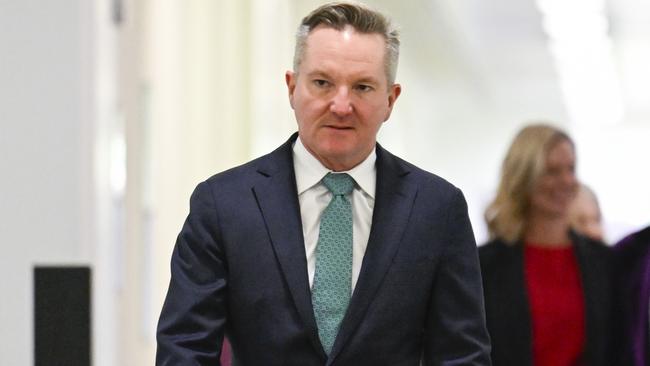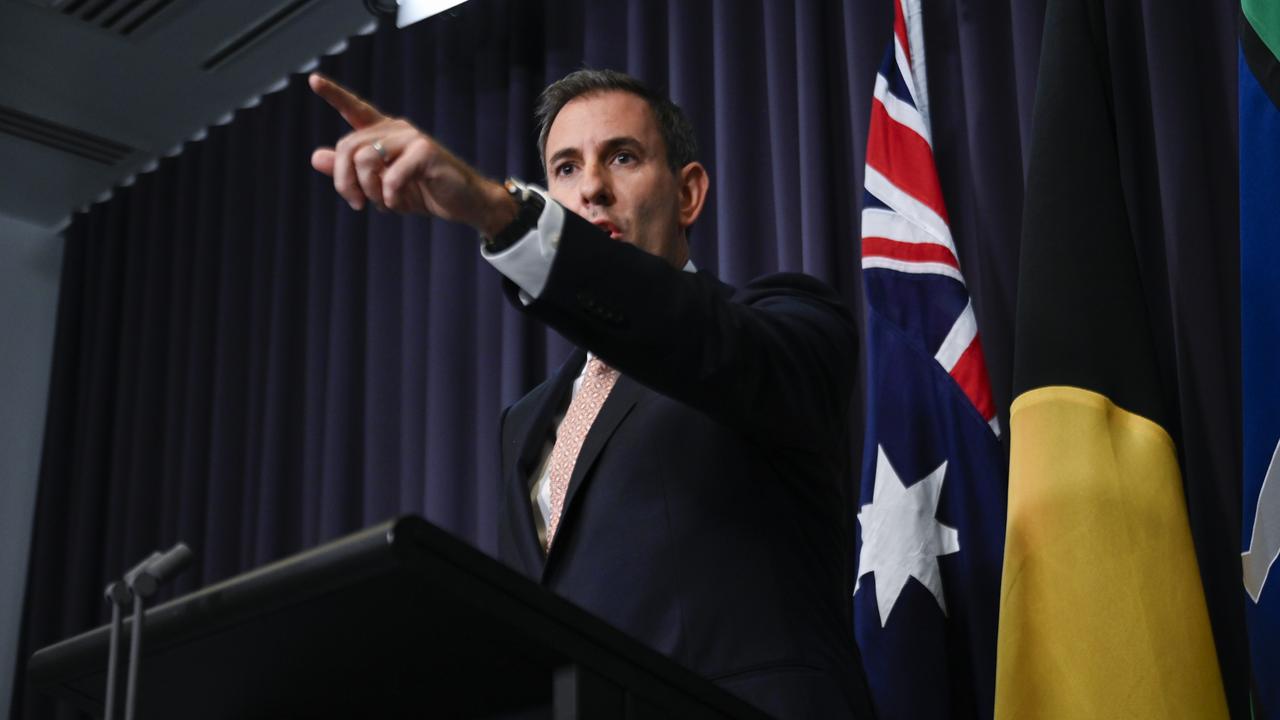Chris Bowen’s failure to act earlier on ailing climate active program has widespread impact


The debate driven by opponents gives companies one more reason not to cut emissions and in creating confusion in the minds of land owners negates the key aim of the market to drive more investment in the sector.
The government understands the issues but it just hasn’t bothered yet to make the changes.
Climate Active was established by the Morrison government in 2019 to replace the Rudd government’s Carbon Offset Standard to allow companies to voluntarily gain carbon neutral accreditation.
For a fee it grants accreditation to the buyers of some now discredited offsets as proof of their individual path to net zero and is used to certify specialist programs such as Indigenous support measures.
High-profile companies are walking from the voluntary scheme for fear of being tarred with the brush of being greenmailers, in part because Bowen and his offsider Josh Wilson have failed to act sooner to bring the policy up to date. They have simply opened the door to attack all programs to cut carbon emissions.
The compliance market is also facing a supply shortage because Bowen has failed to approve new methods in part due to the attacks on the credibility of the scheme.
The market sets the price for offset units and importantly amid all the noise somewhat remarkably the price of the highly regarded government-issued Australian Carbon Credit Units has stayed roughly the same at around $35.75 against the $US0.40 for the price of the international airline offsets program.
International accreditation to aid the likes of African cooking stoves and Indian and Chinese wind turbines are trading in the low $US1 range against the price of an Australian carbon unit.
Sequestration projects under Gold Stand and others are trading in the $20 to $40 range which shows the voluntary market is capable of differentiating on perceived quality and integrity.
The more developed European compliance market is trading around $123 a tonne.
The market is telling you some offsets are duds yet the Australian Carbon Active accreditation program still lists them in its acceptable criteria.
Critics of the concept of offsets are using this disparity to junk the whole program for their own ideological reasons.
Yet most would agree with Carbon Growth Partners’ Rich Gilmore who told this column “if you ditch offsets you ditch commitments to net zero”, it will be simply impossible to meet the objective. Industry veteran Raf Wood added: “Carbon markets play a critical role in sending a price signal of the cost of carbon emissions crucial to emissions reduction strategies.”
Companies such as BHP are big players in the ACCU spot trade and have also made direct investments in environmental planting offset programs by Phil Ireland’s Carbon Neutral and Raf Wood’s Silva Capital, which shows the smart money is backing high-integrity offsets.
Another leg of the fallout from Chris Bowen’s lack of leadership is the failure to approve more methods to create ACCUs, which is creating fear of imminent supply shortages.
Only one method, for planting trees, was approved in the first three years of Bowen’s administration and others such as the integrated farm and land manage-ment method sits on his desk while an overly cautious department works through checklists.
The carbon market is split into what is known as the compliance and voluntary markets, with the former linked to firm government obligations such as the safeguard mechanism which requires big emitters to reduce emissions by 4.9 per cent a year.
One key positive change introduced by Bowen was to put some teeth into the safeguard mechanism, in contrast to the Morrison/Angus Taylor era which was a joke in carbon terms.
In round terms, high-integrity offsets are linked to removing emissions and low-quality offsets are those linked to avoiding emissions. It’s a rough rule of thumb but the latter would include things such as avoiding deforestation by not cutting down trees or building wind farms so you are not using coal-based power and the former planting trees or regenerative farming to better manage land to increase the carbon content of soil.
Supporters like land-based offsets because it helps drive more investment and desirable outcomes such as better water quality and biodiversity.
But opponents say land-based systems are subject to uncertainty and offsets should be linked to actual reduction such as shutting down a power station.
Political football
As much as Telstra’s Vicki Brady tries to steer the company’s image to a leading technology company the politicians in Canberra still see it as a political football.
National Party leader David Littleproud thinks the fixed-line universal services obligation (USO) is worth fighting for, somewhat oblivious to what is happening. Then again the same man wants to fight over the power to force divestment powers on the supermarkets without explaining how it could be done and just how that would translate into better consumer and producer prices.
Former communications minister and now Attorney-General Michelle Rowland effectively pre-empted Littleproud’s USO concerns before the election by floating a mobile phone obligation on the mobile operators to ensure coverage via low Earth orbit (LEO) satellites. Fact is all three operators are already walking down that path but it doesn’t hurt to hold their feet to the fire to make sure they proceed.
The present USO gives Telstra $270m a year to ensure fixed-line services are maintained. This is funded by the carriers which means market leader Telstra picks up a large part of the tab.
Rowland’s team was looking at future funding for any USO including widening the obligation to data centres, cloud and satellite providers such as Elon Musk, Amazon, Microsoft and Google who benefit from universal coverage. The idea being they benefit from communications coverage so maybe they should help pay for it. The policy work is still in progress but suffice it to say it doesn’t make a lot of sense to have a USO on fixed-line services any more.
Consolidation backed
Gina Cass-Gottlieb has opened the door to a more consolidated general insurance market by waving through IAG’s RACQ acquisition without even a statement of issues to fully investigate the impact.
No wonder IAG boss Nick Hawkins, as he runs around the country gobbling up competitors, was happy to proceed with his $1.4bn WA motor club acquisition even before the ACCC flashed the green light on Queensland.
The ACCC stresses the Queensland decision does not mean it will wave through the WA motor club acquisition, but it would say that.
The ACCC has not halted one acquisition this financial year and while some have been cleared with behavioural undertakings and two have walked before a final decision the track record is clear.
When it comes to the crunch the competition regulator implicitly backs further industry consolidation.
IAG and Suncorp account for 50 per cent-plus of the national general insurance, with market leader IAG’s share boosted by 4 per cent thanks to the effective case put by its lawyer, HSF’s Patrick Gay.
The ACCC noted RACQ was a relatively passive player and had funding issues due to the mass of natural disasters to hit Queensland in recent years. It also pointed to the existence of competitors such as Suncorp and QBE, and fast-growing outsiders like Youi, Auto & General and Hollard.
A&G is part of the South African-based Reef Investment Consortium which also owns Budget Direct and iSelect.



Climate Change and Energy Minister Chris Bowen’s failure to act earlier on the ailing Climate Active program has let loose a potential crisis which threatens his objective to cut emissions to meet his international commitments.